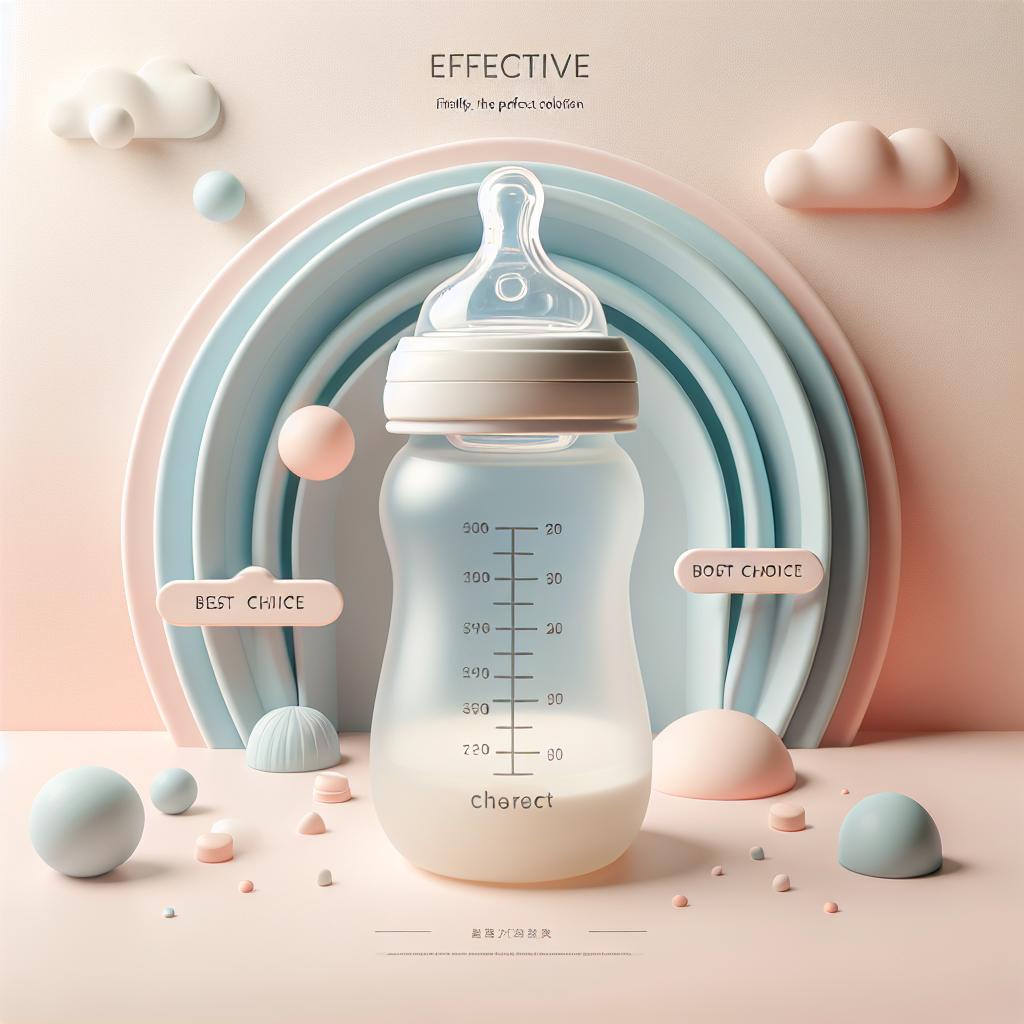Baby Crying at Bottle Time – Identifying the Core Issues
It can be heart-wrenching when your baby is crying at bottle time. This should be a period of connection and nourishment, not of anxiety and distress. In this blog post, we’re going to delve into the possible reasons behind these bottle time cries and offer some effective solutions.
Understanding Why Your Baby Cries at Bottle Time
Before we can address the issue of a baby crying bottle time, it’s crucial to understand why this might be happening. Here are a few common reasons:
- Colic: Babies with colic experience intense periods of fussiness that can coincide with feedings. This NHS resource provides more detail about colic and bottle feeding.
- Bottle-feeding resistance: Some babies simply resist bottle-feeding for various reasons, from discomfort to preference for breastfeeding. Overcoming Bottle-Feeding Resistance offers invaluable advice on this issue.
- Feeding technique issues: Sometimes, the problem might lie with how the bottle is introduced or handled during feeding time.
Dealing with the Issue of Baby Crying at Bottle Time
Once you’ve identified the possible reasons, the next step is to address them. Here’s how:
- Sort colic issues: If your baby has colic, speak to your healthcare provider about coping strategies and treatments. They can guide you on soothing techniques that can be particularly useful during feeding times.
- Overcome bottle-feeding resistance: If your baby resists bottle feeding, techniques such as switching up feeding positions, varying the bottle temperature, or using different bottle nipples might help. More information can be found on our article on overcoming bottle-feeding resistance.
- Master feeding technique: Observing experts or consulting with a lactation specialist can prove beneficial. They can show you optimal positioning, appropriate feeding pace, and other tweaks that can make bottle-feeding more enjoyable for your baby.
Reducing Anxiety Around Bottle Time
Lastly, recognising and managing any anxiety surrounding bottle feeding is vital. Babies can pick up on stress and tension, which may exacerbate their own discomfort or anxiety. You may find our guide on reducing bottle-feeding anxiety beneficial to read.
Remember, bottle-feeding is a learned skill, both for you and your baby. With patience, time and perhaps a few modifications, your baby may soon associate bottle time with comfort and satisfaction.
Baby Crying at Bottle Time – Identifying the Issues and Offering Solutions
Professional Advice for Colic Issues
When your baby has colic, it can often be quite challenging to get them to accept the bottle. Baby shouldn’t associate feeding time with pain; it should be a comfortable process for both parent and baby. An excellent way to soothe a baby suffering from colic is by using a warm bottle; the heat can be very soothing and typically helps relax the muscles. Kids Health provides a detailed article on recognizing and dealing with colic problems in babies; we highly recommend giving it a read. Pediatricians can also provide prescribed treatments and soothing techniques that are effective during feeding times.
Techniques for Overcoming Bottle-Feeding Resistance
If your baby is showing resistance to bottle feeding, don’t despair. It can be a common challenge that many new parents face. A potential solution is to explore different types and brands of baby bottles and nipples. Every baby is different, and some may prefer one style over another. Gradually introducing the bottle and combining bottle feeding with breastfeeding may also prove helpful. Visit Baby Care Advice for expert advice on dealing with bottle-feeding problems.
Improving Feeding Techniques
Apart from having colic or a strong preference for breastfeeding, one reason a baby may cry during bottle time is due to the feeding process itself. It could be the position in which they are held, the flow of the milk, or how the bottle is introduced. Working with lactation consultants or your pediatrician can be highly beneficial for improving your feeding technique. The experts at Tommee Tippee provide beneficial insights on why your baby could be crying when feeding and how to comfort them.
Making Bottle Time a Positive Experience
As a parent, it’s important to remain calm and patient during bottle time. Babies are highly perceptive and can very quickly pick up on tension or stress from their caregivers. This added anxiety can further contribute to the negative associations with bottle-feeding. Try to make feeding a relaxed and pleasant experience, using this time to strengthen the bond with your baby. Remember to pay close attention to your baby’s cues, adjusting your approach as needed. They will likely show signs when they require a break, need burping, or are ready to continue feeding.
Gradual Bottle Weaning
As your baby grows older and starts consuming solid foods, they will naturally start reducing their bottle-milk intake. The transition from a bottle to a cup should be gradual to avoid any feeding issues or problems. Healthy Children offers a comprehensive guide on discontinuing the bottle, which can be a valuable resource during the weaning phase.







